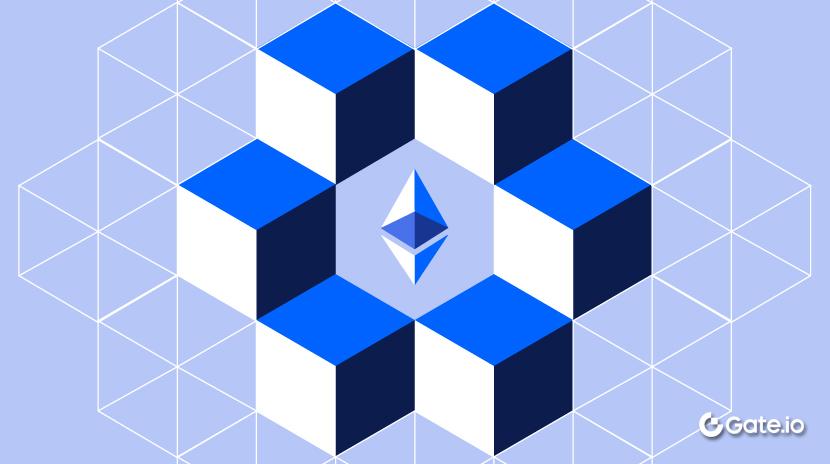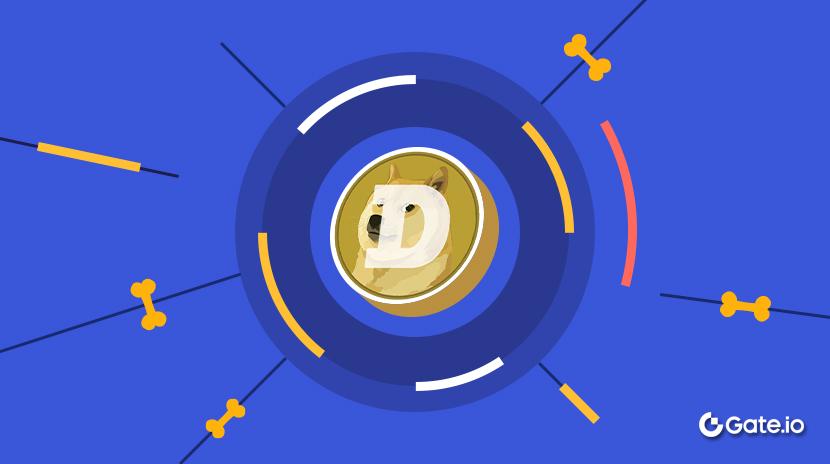token económico

O que é um Economic Token (EconomicToken)?
Um economic token é um ativo digital criado para fomentar a colaboração e a troca de valor num determinado ecossistema.
É emitido e circula numa blockchain, estabelecendo ligação entre a atividade dos utilizadores e o valor global do ecossistema. Os exemplos mais comuns incluem pagamento de taxas operacionais on-chain (Gas), participação em votações de governação, staking para segurança da rede e recompensas, e atuação como instrumento de incentivos ou liquidações. Ao contrário dos “pontos virtuais”, os economic tokens são geralmente negociáveis livremente em mercados, com o preço a oscilar em função da oferta e da procura.
Economic tokens não são uma categoria única — abrangem várias formas, como utility tokens, governance tokens, incentive tokens e stablecoins. Por exemplo: ETH serve para pagamentos de Gas e liquidações; UNI é utilizado em votos de governação e incentivos do ecossistema; USDT funciona como meio de pagamento estável; SOL desempenha o papel de token de taxas de rede e de ativo do ecossistema.
Porque é relevante compreender os Economic Tokens?
Compreender economic tokens é fundamental para avaliar a sustentabilidade e a proposta de valor de um projeto Web3.
Primeiro, os tokens definem as funcionalidades disponíveis: pagar taxas de transação, exercer direitos de governação ou realizar staking para obter recompensas — tudo isto afeta diretamente a experiência do utilizador e os potenciais retornos.
Segundo, os tokens influenciam a exposição ao risco: fatores como oferta total, calendário de desbloqueio, design inflacionário, mecanismos de buyback e burn têm impacto na volatilidade do preço e na estabilidade dos rendimentos. Por exemplo, se um projeto tiver desbloqueios significativos de tokens sem procura equivalente nos últimos seis meses, é provável que haja pressão descendente sobre o preço.
Por último, os tokens funcionam como coordenadores do ecossistema: developers, utilizadores, liquidity providers e participantes na governação estão ligados através da mesma credencial de valor. Perceber o token equivale a perceber como o projeto capta e mantém valor.
Como funcionam os Economic Tokens?
Funcionam num ciclo fechado de “oferta—utilidade—procura”.
Do lado da oferta: Os projetos definem a emissão total ou as regras de inflação e estabelecem calendários de desbloqueio. O desbloqueio implica que tokens anteriormente não circulantes são libertados mensal ou trimestralmente para o mercado. Sem mecanismos compensatórios (como burns ou expansão da utilidade), o aumento contínuo da oferta líquida dilui o valor dos detentores.
Do lado da utilidade: Os tokens têm de ter aplicações reais. Exemplos típicos incluem: pagamento de taxas operacionais on-chain (Gas), participação em votações de governação (definição de parâmetros e alocação de fundos), staking (bloqueio de tokens para segurança da rede e recompensas) e consumo em aplicações (como compras in-app em GameFi ou minting de NFT). Quanto maior e mais indispensável for a diversidade de utilidades, mais estável será a procura.
Do lado da procura: Utilizadores genuínos e developers adquirem ou mantêm tokens para funções específicas e recompensas. Por exemplo, para usar Ethereum é necessário ETH para Gas; para obter recompensas de protocolo ou votar é preciso deter o governance token. A liquidez do mercado secundário e o capital externo também influenciam a procura de curto prazo.
Exemplo de ciclo fechado: Uma social dApp recompensa publicações e moderação com tokens; os utilizadores gastam tokens em funcionalidades premium; alguns tokens são queimados ou enviados para a treasury; os detentores de governance votam para ajustar as taxas de recompensa. Assim, estabelece-se um ciclo sustentável de emissão, consumo, reciclagem e governação.
Como funcionam tipicamente os Economic Tokens em cripto?
Os economic tokens desempenham funções de pagamento, governação, staking e liquidação em múltiplos cenários.
Em blockchains públicas, são usados para pagar taxas de Gas e funcionam como ativos do ecossistema. Exemplos incluem ETH, SOL, AVAX — os utilizadores pagam taxas de transação com estes tokens em cada transferência ou interação, gerando procura base.
No DeFi, os tokens são frequentemente usados em staking ou liquidity mining, com recompensas pagas no mesmo token ou num token relacionado. Os protocolos necessitam de capital e incentivos à participação — os tokens oferecem motivação flexível. Por exemplo, depositar stablecoins num protocolo de empréstimos pode gerar recompensas em governance tokens, que depois podem ser usados para votar em taxas de juro ou alocação de recompensas.
Nas exchanges, os economic tokens servem como pares de negociação e instrumentos de dedução de taxas. Na Gate, os utilizadores podem: negociar tokens de projetos em mercados spot; participar em eventos Launchpad para adquirir novos tokens antecipadamente; efetuar staking ou subscrever produtos de rendimento; utilizar tokens da plataforma para compensar taxas de transação em eventos. Estes casos de utilização ligam participação, ganhos e gastos.
Ao nível da aplicação: Em GameFi, os tokens permitem compras in-app, upgrades e recompensas de tarefas; em marketplaces de NFT, os tokens pagam taxas de minting e royalties; stablecoins como USDT ou USDC são usadas para pagamentos e cobertura devido à ligação ao USD e à baixa volatilidade.
Como adquirir Economic Tokens?
Tomando a Gate como exemplo, o processo é simples para principiantes:
Passo 1: Registe-se e conclua a verificação de identidade. Isto aumenta os limites e o nível de segurança, garantindo depósitos e levantamentos fiat e cripto sem dificuldades.
Passo 2: Deposite fundos ou carregue a conta. Pode depositar moeda fiat ou transferir de outra wallet. Confirme sempre a compatibilidade da rede e a exatidão do endereço antes de transferir para evitar perdas por incompatibilidade de cadeias.
Passo 3: Escolha um par de negociação e coloque uma ordem. No mercado spot da Gate, procure o token pretendido (ex.: ETH/USDT, UNI/USDT) e coloque uma ordem limitada ou de mercado conforme o seu plano. Recomenda-se começar com montantes pequenos em várias tranches para mitigar a volatilidade.
Passo 4: Gestão de armazenamento e utilidade. Para negociação de curto prazo, pode manter os tokens na exchange; para holding de longo prazo, considere transferir para wallets de self-custody. Se quiser participar em governação ou interações on-chain, reserve alguns tokens para taxas de Gas; para produtos de rendimento ou staking, reveja as regras dos produtos e limitações de resgate.
Passo 5: Monitorize tokenomics e calendários de desbloqueio. Consulte o site oficial do projeto ou os seus anúncios para acompanhar cronogramas de unlock, planos de burn, utilização de fundos e propostas de governação — tudo isto influencia o desempenho a médio e longo prazo.
Quais as tendências recentes ou dados relevantes sobre Economic Tokens?
No último ano, tanto a oferta como a procura registaram alterações estruturais.
Unlocks & Oferta: Segundo a TokenUnlocks e várias divulgações de projetos para o 3.º trimestre de 2025, grandes e médios projetos estão a desbloquear dezenas de milhares de milhões de dólares em tokens mensalmente. O unlock médio mensal situa-se entre 5–8 mil milhões $ no último ano — mais distribuído do que em 2024. Isto deve-se ao facto de projetos lançados em 2021–2022 entrarem em fases avançadas de libertação e desbloqueios mais lineares substituírem cliff releases concentrados.
Oferta & Quota de Stablecoins: Relatórios da CoinGecko e Messari para o 3.º trimestre de 2025 mostram que a oferta total de stablecoins cresceu ligeiramente nos últimos seis meses. USDT e USDC mantêm mais de 80 % do mercado de stablecoins. A quota elevada reflete forte procura de transação e liquidação, além de dar suporte de liquidez a outros tokens e ativos de risco.
Taxas On-Chain & Atividade: Ethereum e várias blockchains de alto desempenho registaram aumento de atividade este ano. As taxas sobem em períodos de pico mas descem em períodos calmos graças à compressão e tecnologias de escalabilidade. Para economic tokens, maior gasto em Gas reforça a procura rígida, mas pode levar utilizadores para redes Layer 2 com taxas inferiores.
Staking & Participação em Governação: A taxa de staking do Ethereum manteve-se entre os 20 % altos e os 30 % baixos ao longo do último ano (segundo várias fontes). Novos projetos recorrem frequentemente a estratégias “staking—points—airdrop” para crescer. Isto aumenta a “procura de tokens bloqueados”, mas utilidade insuficiente pode gerar pressão de venda quando terminam as recompensas.
Estrutura de Negociação: Relatórios da Kaiko, CoinGecko (Q3 2025) indicam que a quota de negociação descentralizada aumentou ligeiramente face a 2024 — sobretudo em períodos de lançamentos e airdrops. Para economic tokens, isto sinaliza mais negociação e liquidez nativa on-chain.
Nota: As fontes de dados podem diferir na metodologia — os dados acima baseiam-se em relatórios públicos. Para acompanhamento rigoroso, siga os anúncios atuais dos projetos específicos.
Qual a diferença entre Economic Tokens e Utility Tokens?
São conceitos relacionados mas distintos; economic tokens representam uma categoria mais ampla que inclui utility tokens como um dos tipos.
Economic tokens são “credenciais de valor que promovem a colaboração na rede”, abrangendo funções como pagamento, governação, staking, recompensas, entre outras. Utility tokens focam-se em funções específicas dentro de uma aplicação — como pagar taxas ou desbloquear serviços ou permissões especiais.
Exemplos: ETH é economic token (liquidação/valor de ecossistema) e utility token (pagamento de Gas); UNI coordena governação/incentivos como economic token — a sua função está no voto/recompensas; USDT é utilizado para pagamentos/liquidações como economic token mas também serve funções utility em apps específicas.
Outros tipos incluem governance tokens (concedem direitos de voto sem necessariamente pagar dividendos) e stablecoins (usadas para pagamentos/cobertura mas nem sempre para governação). Compreender estas distinções permite definir estratégias de participação e tolerância ao risco.
Este conteúdo não constitui aconselhamento de investimento. Analise cuidadosamente tokenomics, calendários de desbloqueio e utilidades reais antes de interagir com qualquer projeto.
Termos Relacionados
- Tokenomics: Estrutura da oferta de tokens, distribuição e mecanismos de incentivo para regular o comportamento dos participantes no ecossistema.
- Inflação: Fenómeno em que o aumento da oferta de tokens conduz à diminuição do valor unitário.
- Recompensas de Staking: Incentivos adicionais em tokens atribuídos a detentores que bloqueiam ativos para participar no consenso ou governação da rede.
- Liquidity Mining: Fornecimento de liquidez em exchanges descentralizadas em troca de incentivos em tokens.
- Votação de Governação: Mecanismo em que detentores de tokens usam direitos de voto para decidir políticas do projeto ou alterações de parâmetros.
FAQ
O que é Tokenomics?
Tokenomics refere-se ao design e gestão das regras económicas e estruturas de incentivo de um crypto token. Abrange oferta total, métodos de distribuição, calendários de libertação e modelos de recompensa para detentores. Uma tokenomics bem desenhada promove o crescimento sustentável do projeto; sistemas mal desenhados podem provocar quedas acentuadas de preço.
Qual a diferença entre Economic Tokens e Governance Tokens?
Economic tokens são usados principalmente para incentivos, pagamentos e reserva de valor — os detentores obtêm retorno através da utilização. Governance tokens concedem direitos de voto para decisões-chave do projeto. Alguns projetos emitem ambos os tipos; outros combinam ambas as funções num único token.
Como devem os iniciantes avaliar a qualidade de um Economic Token?
Foque-se em três aspetos principais: verifique se a distribuição do token é equilibrada (alta concentração implica risco de dump de preço); reveja os calendários de desbloqueio (desbloqueios grandes podem impactar o preço); analise se os mecanismos de incentivo estão alinhados com os interesses dos detentores. Grandes exchanges como a Gate oferecem transparência sobre dados circulantes.
Porque alguns Economic Tokens continuam a perder valor?
Três motivos principais: desbloqueios iniciais grandes aumentam a oferta; falta de utilidade real infla o valor percecionado; sistemas de incentivo mal desenhados não atraem utilizadores genuínos. Pesquise sempre o suporte de valor de longo prazo de um projeto antes de investir.
Como comprar e negociar Economic Tokens na Gate?
Procure o nome do token ou endereço de contrato na Gate, selecione o par de negociação e coloque a ordem. Iniciantes devem começar com montantes pequenos para conhecer a liquidez e a volatilidade do preço. Verifique sempre os endereços de contrato para evitar moedas falsas — e defina pontos de stop-loss para proteger os fundos.
Referências & Leituras Adicionais
- https://en.wikipedia.org/wiki/Token_economy
- https://www.ebsco.com/research-starters/psychology/token-economy
- https://www.mayinstitute.org/news/acl/asd-and-dd-child-focused/use-token-economies-to-provide-positive-reinforcement-and-modify-behavior/
- https://www.pacificautism.org/what-is-a-token-economy-system/
- https://www.oreilly.com/library/view/what-is-the/9781492072973/ch01.html
- https://walton.uark.edu/insights/posts/the-token-economy-and-the-future-of-individual-empowerment.php
- https://coinmarketcap.com/academy/glossary/token-economy
Artigos relacionados

Como Aposta ETH

O que é Solana
